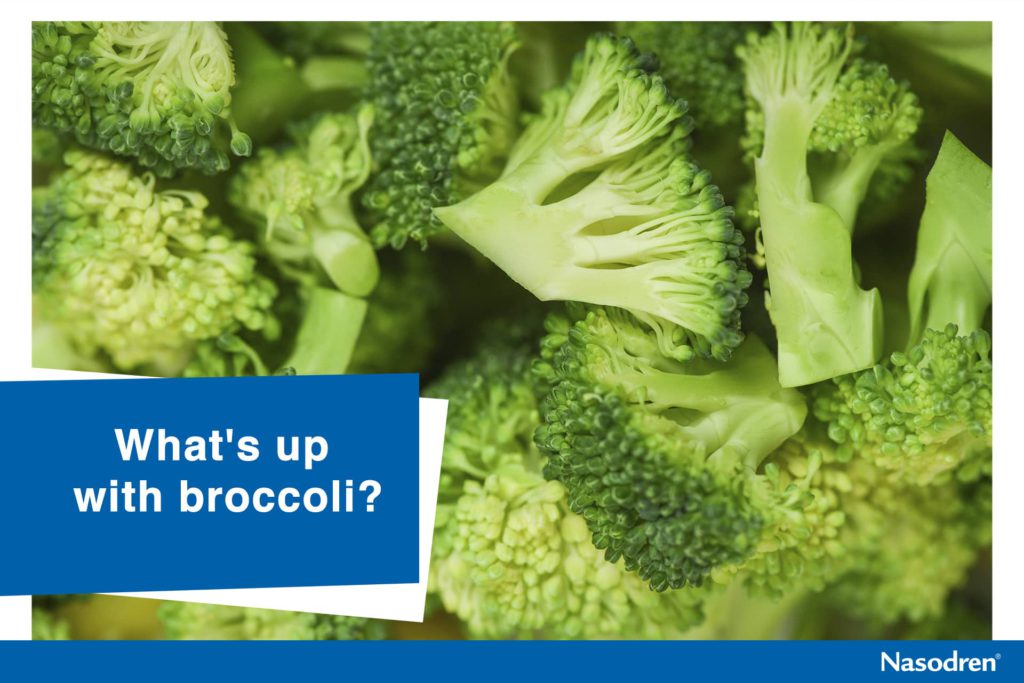If you asked a group of kids what food they hate the most, the answer would most probably be “veggies” (along with fish), of any size and shape. For a child, only a few things are more intimidating than a big plate full of green beans, which cause drama and endless tugs of war between parents and their children during mealtimes. Broccoli stands out as one of the little ones’ main enemies. It’s green and doesn’t smell great, especially when cooked, so here you’ve got the whole package for a kid’s refusal. Does that mean they should get away with their plan? Clearly, no!
No matter how pestered you get, you should never give up trying to persuade your son or daughter to eat it, as broccoli has emerged as a total superfood to combat many diseases. New studies keep showing extra potential benefits related to this flowering-head plant, which boasts of having a huge amount of nutrients, such as vitamin C and vitamin K, that turn it into a powerful booster for our immune system. In addition, this bonsai-looking veggie is very rich in fiber, and that’s why it can favour the digestive process and, as a result, help prevent colon problems.
Do you want more? The American Institute for Cancer Research includes broccoli as a cancer-fighter food owing to its phytochemicals, plant chemicals like carotenoids that can reduce and slow cancer growth, as well as keep the foods we eat and drink and what we breathe from becoming carcinogens. To cap it all, broccoli is proven to be helpful for cardiovascular disease since it can reduce the levels of cholesterol and triglycerides.
New (and promising?) findings
Researchers at the University of Illinois have put broccoli back in the spotlight these days after finding out what seems to be a way to make this verdant plant even healthier. By crossing two broccoli lines and testing their progeny, scientists have managed to identify the genes that control the accumulation of phenolic compounds in these vegetables. Just so you know, such compounds can lower the risk of severe illnesses such as type II diabetes, certain types of cancer, asthma and heart disease.
“Phenolic compounds have good antioxidant activity, and there is increasing evidence that this antioxidant activity affects biochemical pathways affiliated with inflammation in mammals. We need inflammation because it’s a response to disease or damage, but it’s also associated with initiation of a number of degenerative diseases. People whose diets consist of a certain level of these compounds will have a lesser risk of contracting these diseases,” University of Illinois geneticist Jack Juvik told.
What does such a study imply then? By combining different broccoli strains, the researchers could determine which ones had the highest level of phenolics, which eventually could help them breed broccoli in order to make it even healthier (more phenolic compounds means extra health benefits). They plan on trying the same experiment with other Brassica vegetables, like cabbage.
All that glitters is not gold
Despite all the advantages mentioned in these lines, broccoli has its own Achilles’ heel. Experts warn against excessive consumption of broccoli by those people suffering from goiter or hypothyroidism, as cruciferous vegetables contain certain substances that can block iodine adsorption, thus jeopardizing the correct functioning of the thyroid gland. If that’s your case, you shouldn’t avoid eating broccoli, but do it with moderation.
All in all, we could almost say that broccoli is a win-win when it comes to having a disease-preventing diet. Yet, that doesn’t mean you should stuff yourself with it, but have it on a regular basis instead. Keep in mind that broccoli isn’t a panacea and the solution to all problems; just a great complement for a healthy way of life.
